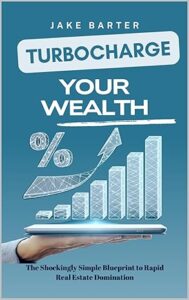If you’re in the market for a home loan, you’ll know there are many boxes to tick before you’ll be approved for one. But that doesn’t mean it’s impossible. After all, banks and lenders are in the business of providing home loans. “Many new borrowers overcomplicate this,” Icon Money managing director Jasjeet Makkar told Savings.com.au. “Banks aren’t evil – they look for very simple things. They want to see a borrower present themselves as having good saving habits, good credit and good repayment history, having been on time with their rent, simple things like that.”
So, what if you’re not as financially polished as you could be? Well, that doesn’t mean you won’t be able to get a competitive home loan deal, but you should be aware that banks may ask you additional questions. Ultimately, a lender will look at how much money you bring in, how much you spend, your assets and investments, and your regular saving habits. So, if you’re someone who likes to deal in cash only or can’t prove your ins and outs, you might face some scrutiny when it comes time to apply for a home loan. “Banks are always giving you the first opportunity to first declare expenses,” Mr. Makkar said.
Like it or not, the reality is if you want to minimize the chances of your loan application being knocked back or delayed, you should consider how you spend and save in the weeks and months leading up to your application. Fortunately, there are plenty of baby steps a would-be borrower can take to clean up their finances prior to seeking a home loan.
If you want to be approved for a loan, you might want to rein in your spending. A lender probably won’t want to see your budgeting spreadsheet, but they will definitely want a peek at your current living expenses and financial commitments. They’ll also want to see that you have good spending habits. Two lattes a day might get you through your working week, but too much discretionary spending could impact your chances of being approved for a loan. Additionally, any financial behavior that seems dodgy (even if it’s not) will likely raise a red flag. “If they see large, chunky ATM withdrawals, especially on a regular basis, banks are going to ask us for an explanation, because that’s something that can’t be itemized straightaway,” Mr. Makkar said.
You may need to reconsider your Buy Now Pay Later (BNPL) activity too. As of June 2025, BNPL is considered a new category of ‘low-cost credit’ under the National Consumer Credit Act. In short, it means BNPL providers are now required to practice responsible lending, just like other lenders. It also means they’re required to perform what’s called a ‘hard’ credit score check, meaning it will be recorded on your credit report when you apply to a new provider or to increase your credit limit.
Proving you can repay your home loan is the most important requirement you must meet to get one. You basically want to show a lender that you have a clean and stable financial history. That means a series of late or missed payments on another loan or multiple high-interest debts could be a sure-fire way of ensuring your loan lands squarely on the reject pile. Conversely, a track record of consistently meeting debt repayments could demonstrate that you’re a low-risk borrower.
Another thing to be wary of is your credit card limit. When lenders assess your borrowing power, they take into account your credit card limit, not the amount you currently have outstanding. So, if you have a credit card with a $5,000 limit, the lender will assume that’s how much debt you currently owe, even if you don’t use the card or have no outstanding debt on it.
Unsurprisingly, lenders want to see that you can hold down a job. Unless you have a pile of gold tucked away in your spare room, it’s generally assumed your income will be used to make loan repayments. Generally, most lenders are more comfortable if you’ve been with the same employer for at least six months beyond your probation period.
Lenders will love you if you can show you have a solid history of saving and you’ve built up a strong deposit over time. On top of that, if you’re borrowing more than 80% of a property’s purchase price, you’ll likely have to prove your savings are ‘genuine,’ which means that you saved them yourself over time.
Unsurprisingly, a would-be borrower wracked with debt will send most lenders running for the hills. Before you even think about applying for a home loan, get on top of any outstanding debt you may have.
Having a safety net in place is always a good idea. Maintaining an emergency fund that you can fall back on if your income stream falters is not only attractive to lenders, it can also provide valuable peace of mind and keep you upright until you find your financial feet again should an unforeseen expense set you back.
While it’s important to compare lenders, submitting multiple applications to multiple lenders will leave a black mark on your credit report. Such blemishes on your credit score generally don’t look very good. You don’t want to appear desperate so just play it cool when it comes to submitting a home loan application.
If you have outstanding debts or a pockmarked credit history, it’s always best to own up to them right at the start. You can be sure that the lender will uncover all that information anyway and when they do, you might not be given the chance to explain. Your loan application could even be declined due to non-disclosure.
If you’re hoping to be approved to hold a home loan, it’s important that a bank or lender can see you’re financially fit to do so. If you can prove that you’re consistently paying your bills on time, saving on a regular basis, and keeping discretionary spending to a bare minimum, you’ll maximize your chances of obtaining loan approval. So now might be the best time to get on top of your debts, ensure your credit history is squeaky clean, and put a good savings plan in place. That might set you squarely on the path to seeing your home loan application approved.
📰 Related Articles
- Maximize Financial Benefits: Conduct Home Loan Health Check Before EOFY
- CBA Lowers Home Loan Rates to Ease Financial Burdens
- Westpac Simplifies Home Loan Process for Self-Employed Borrowers
- Westpac Simplifies Home Loan Process for Self-Employed Australians
- Westpac Leads Major Lenders in Home Loan Rate Cuts

 Rattle the Market
Rattle the Market Side Hustle
Side Hustle Turbocharge Wealth
Turbocharge Wealth





 Stock Market
Stock Market Real Estate Secrets
Real Estate Secrets Homeowner’s Code
Homeowner’s Code